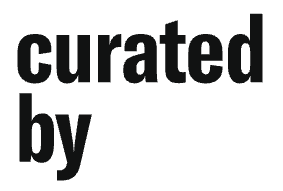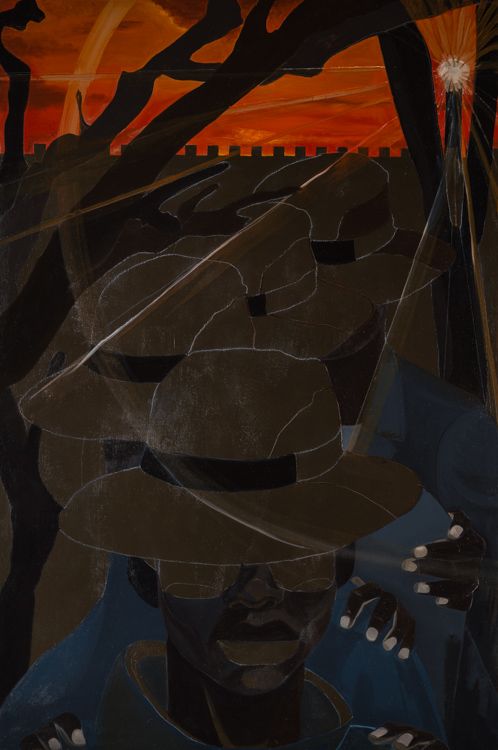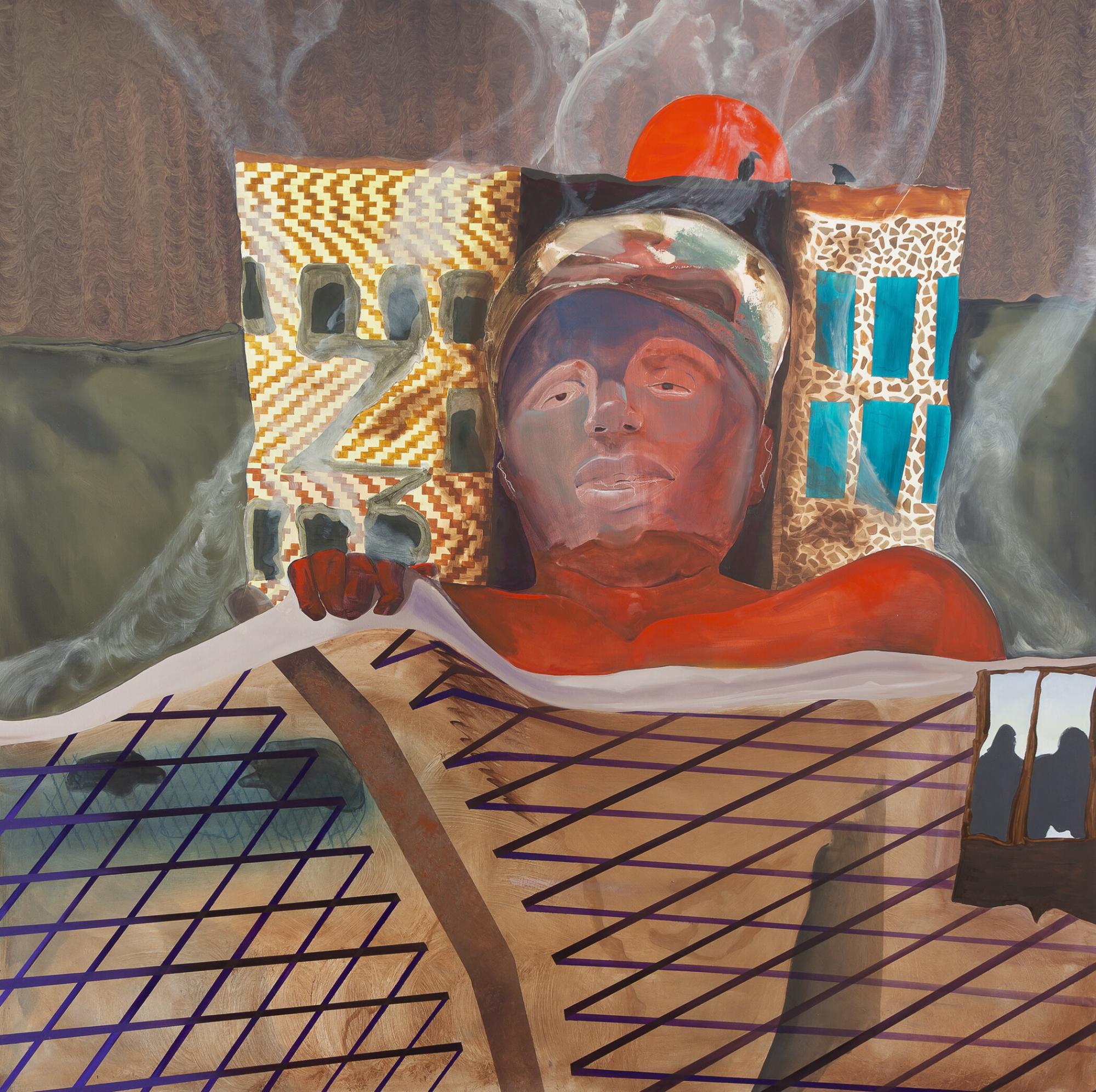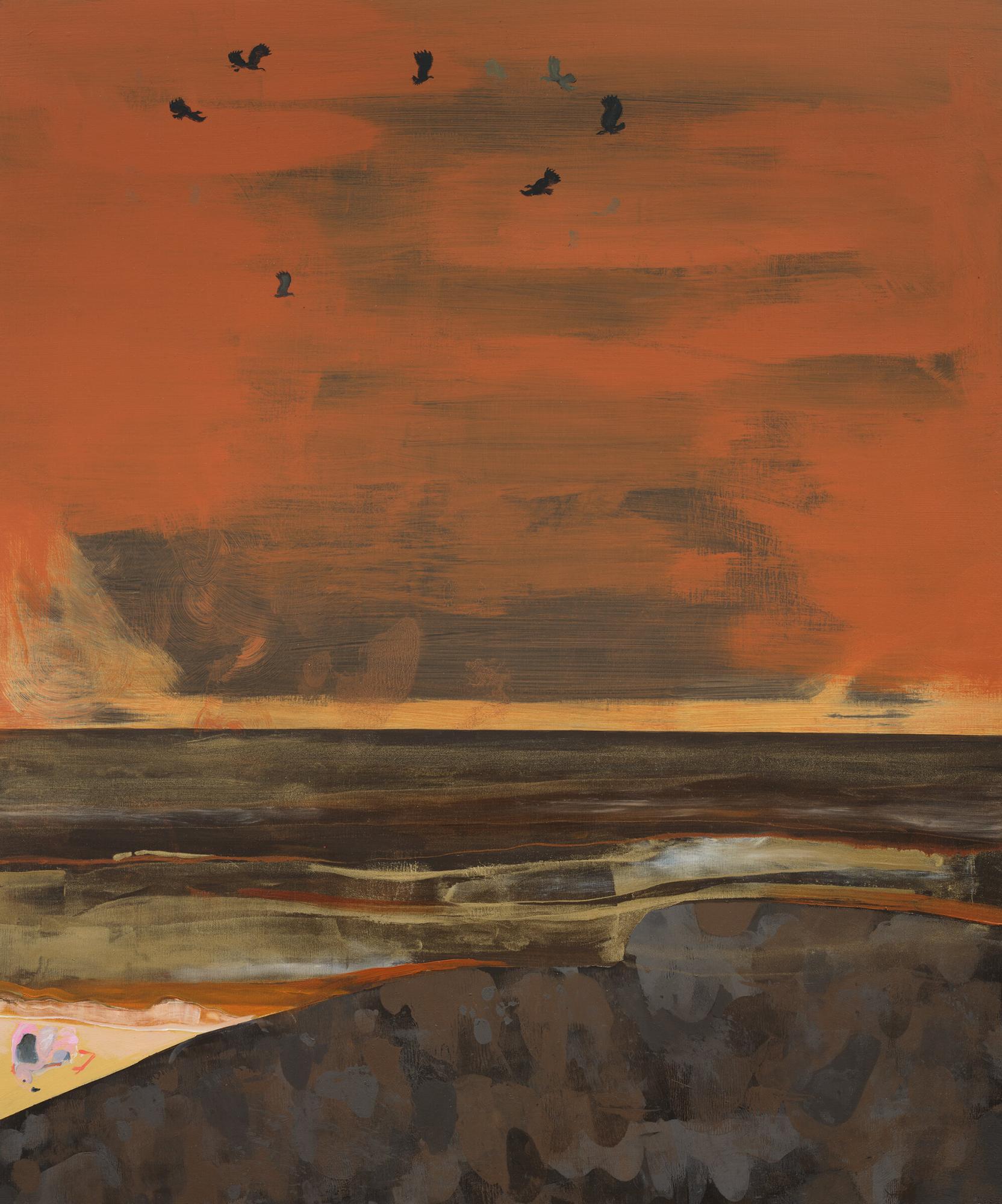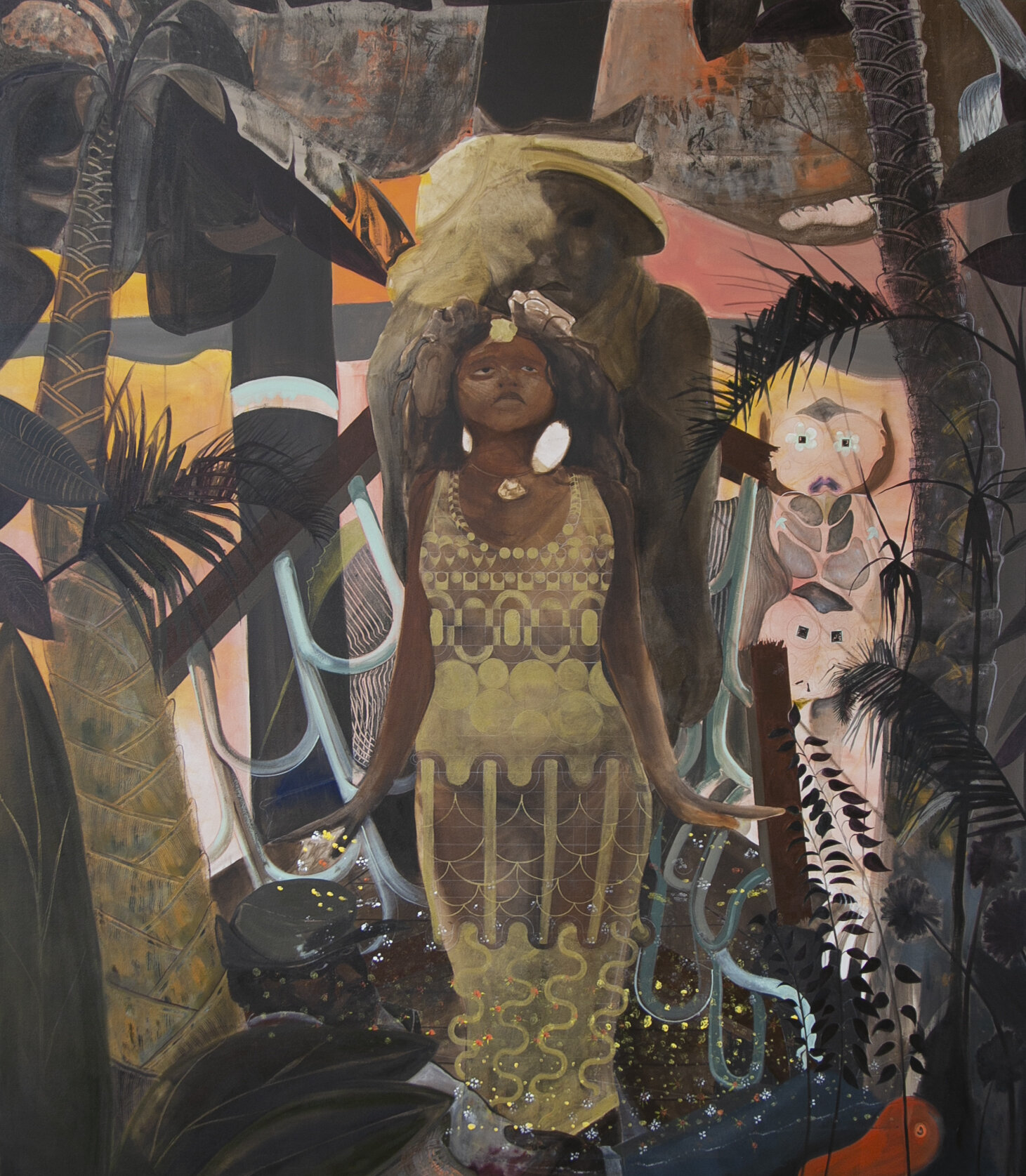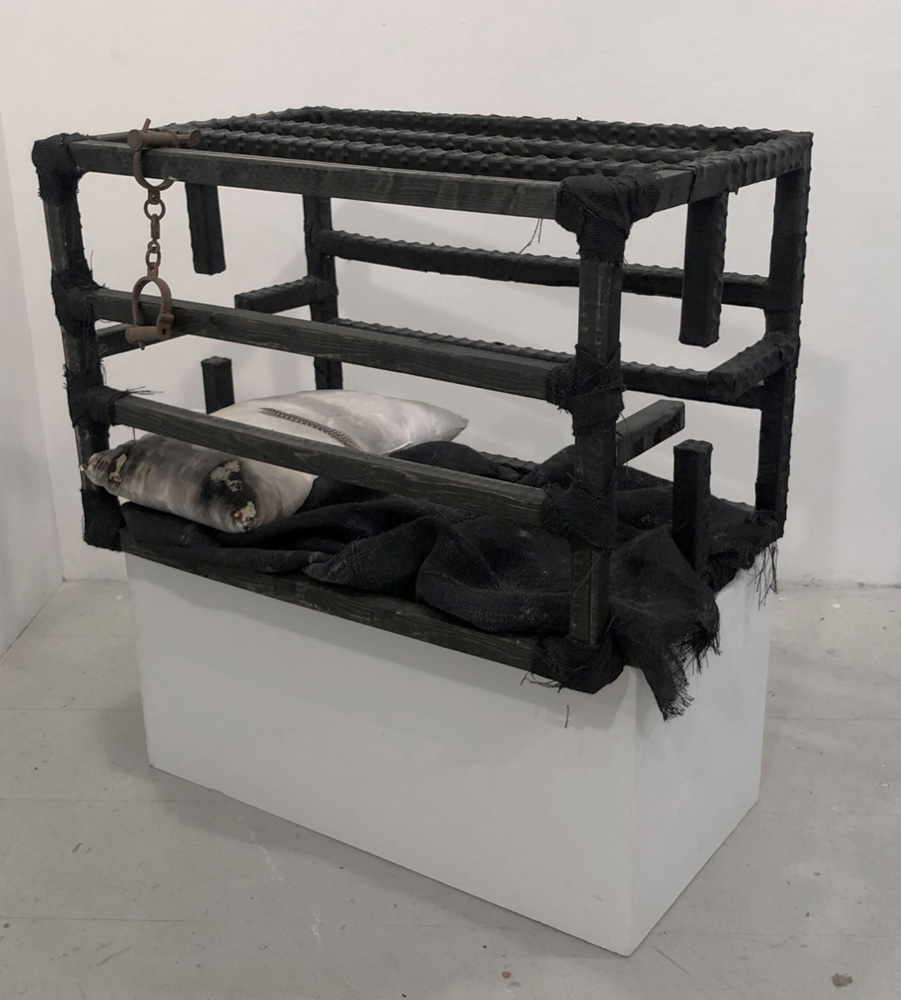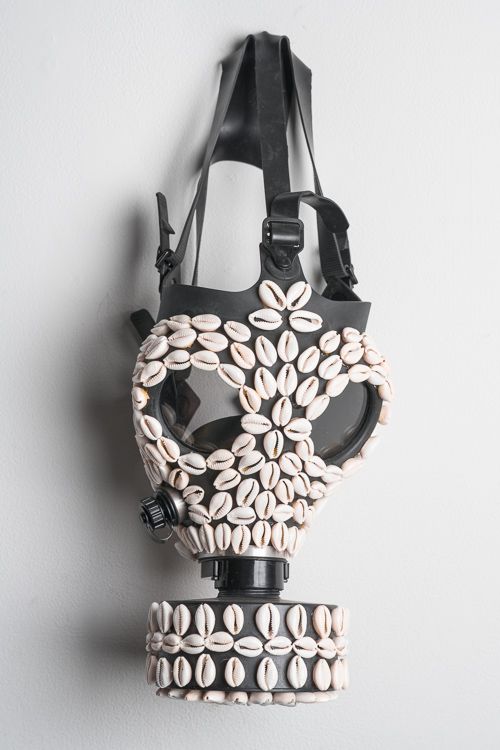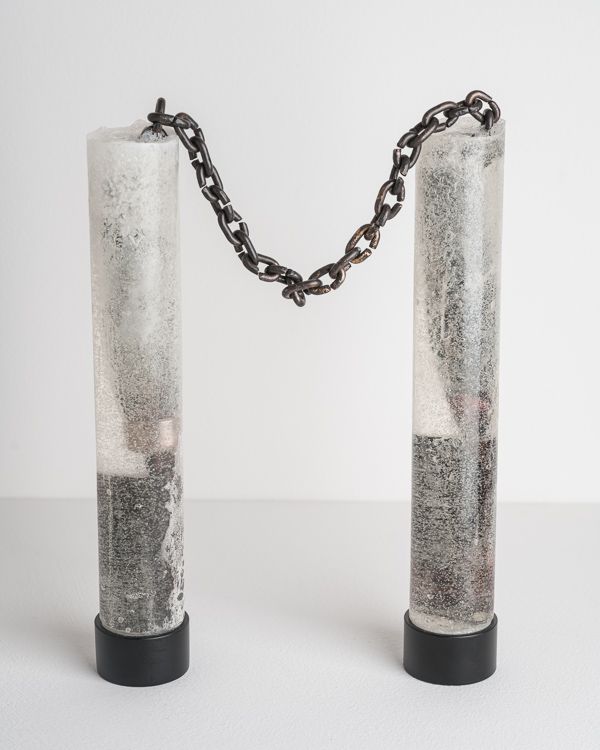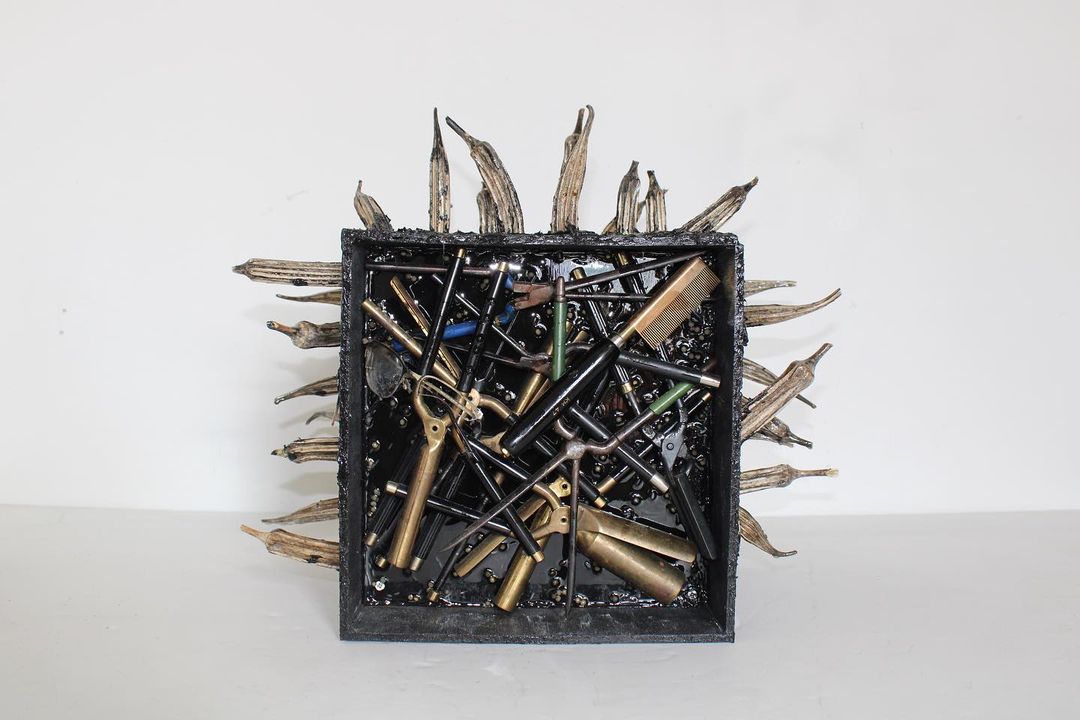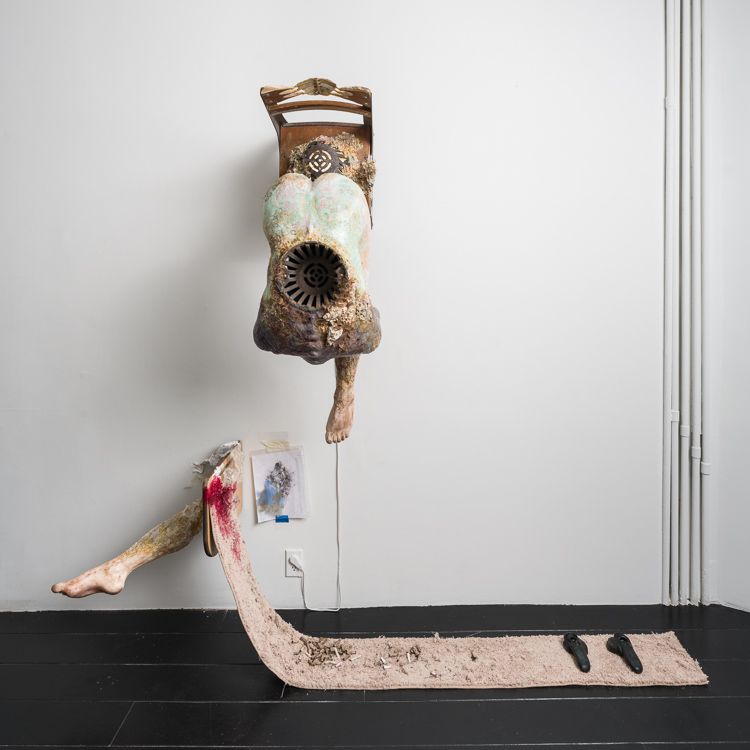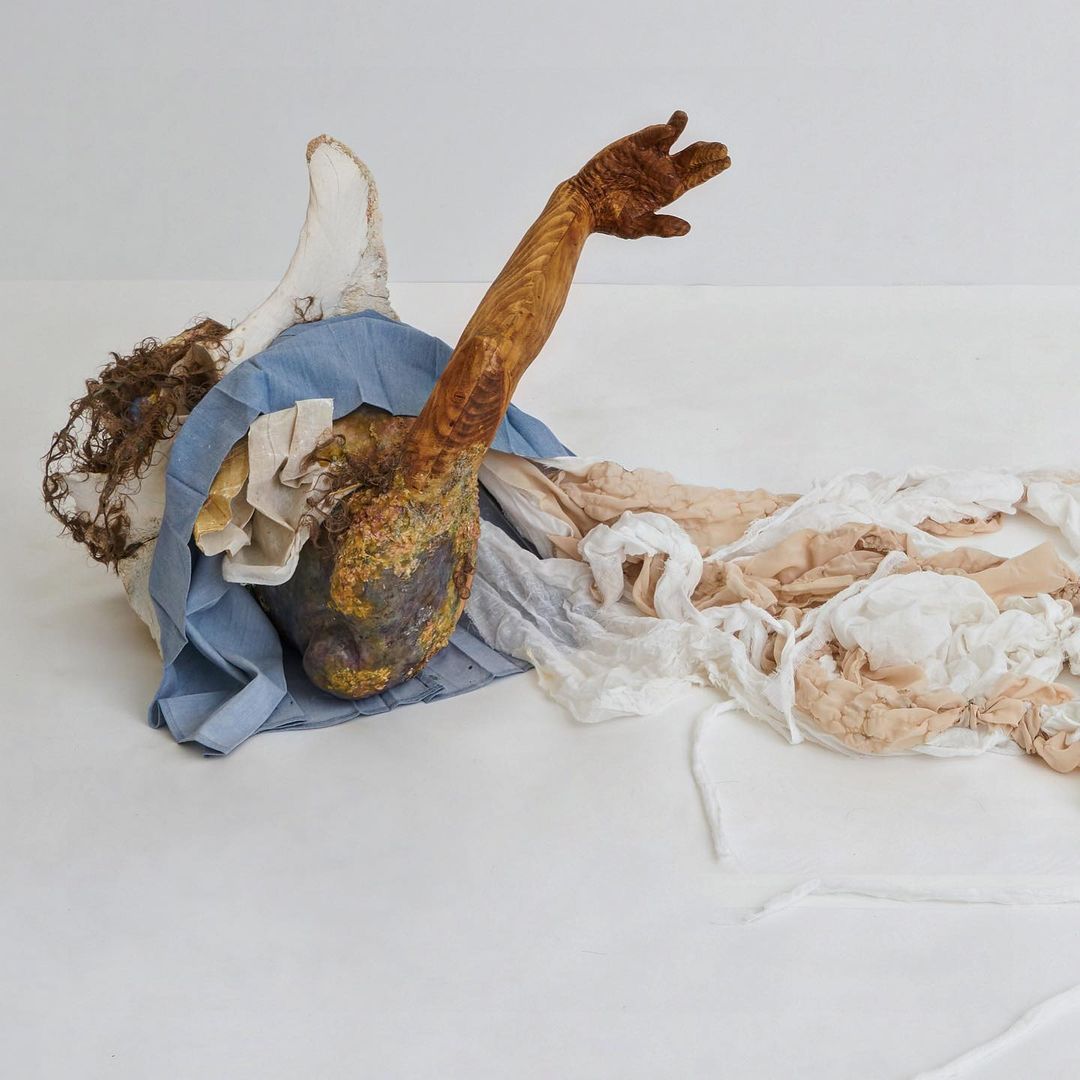Galerie Kandlhofer curated by KJ Freeman
„The Body Is Sacrament“

www.kandlhofer.com
Curator(s):

KJ Freeman (b. 1992) is an artist and curator who was born and raised in New York City. KJ started HOUSING gallery in 2017 to provide a space for Black and brown artists, especially those who have been historically excluded from the art world. KJ tackles identity formation and deconstructs normative structures through her curatorial practice. In 2021, KJ recieved the Armory’s Gramercy International Prize for experimental New York based galleries. KJ has also spoken at the LISTE art fair and has been a fellow in the New Museum Seminars.
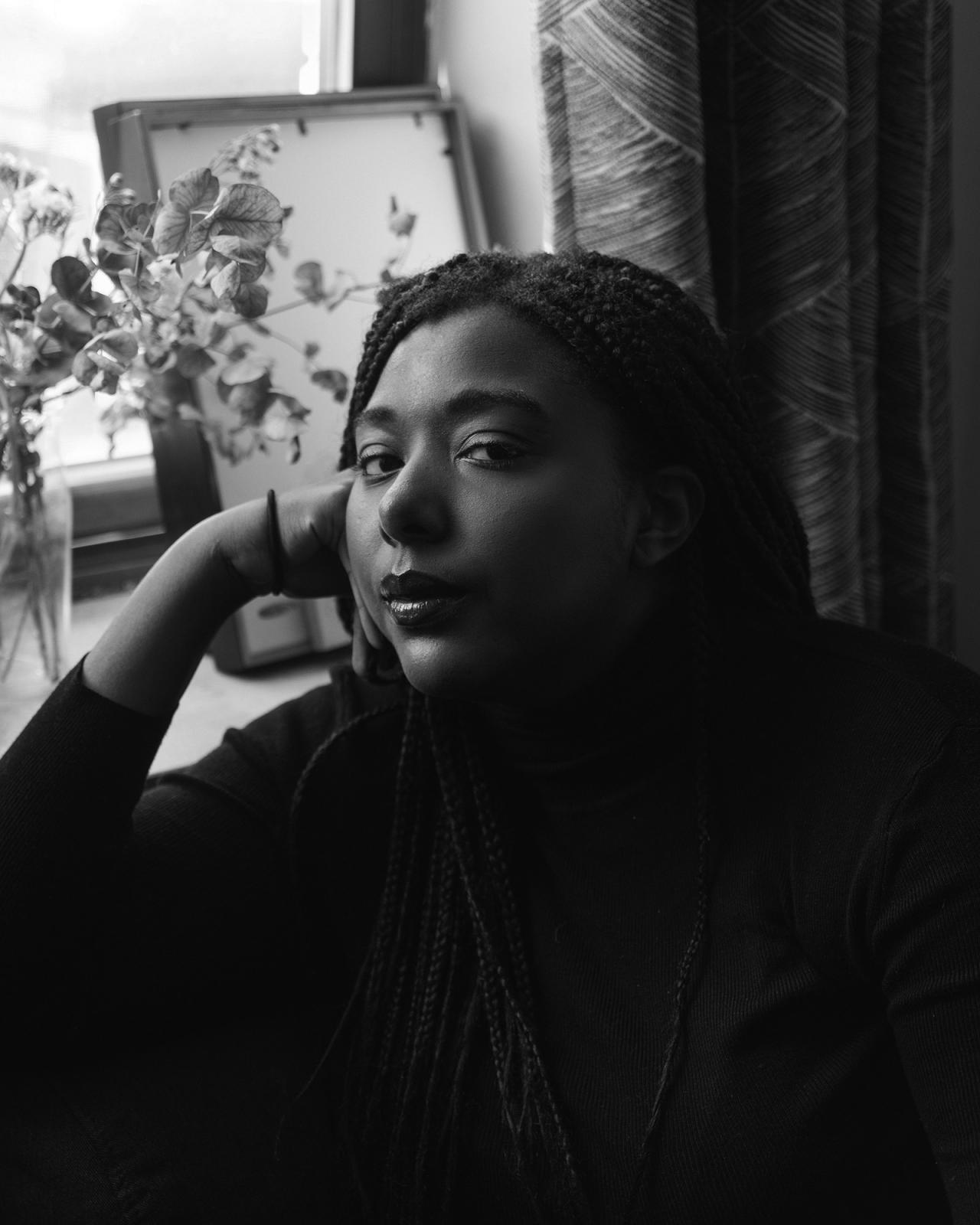
Artist(s):
-
Nathaniel Oliver MoreNathaniel Oliver is a multidisciplinary artist currently based in New York City. His practice in painting, sculpture, performance, video, and installations focuses on veracity not being absolute. Guided by perspective, he challenges the normality of the world in which we live. In this digital world, fact is manipulated and cropped to its beneficiary. Conversely, veracity both builds and dismantles spaces. His works reflect the literal and metaphorical experiences that he has come to comprehend and the attestation of him being there.
-
Calli Roche MoreCalli Roche is an American artist based in Brooklyn, NY. Their recent work has evolved from thinking on classism and exceptionalism in the African diasporic community. They are an attempt at the externalization of the tension between innate, inherited, ancestral values and indoctrinated western values; aiming to create space for Black mediocrity as a site of critique, for re-evaluating Black entanglements with capitalism and western ideas of prosperity and expanding our visions of Black futures.
-
Catalina Ouyang MoreCatalina Ouyang engages object-making, interdisciplinary environments, and time-based projects to indicate counternarratives around representation and self-definition. Through fragmentation, expansion, and abstraction, their work proposes the body as a politicized landscape subject to partition. Working gnostically with materials ranging from hand-carved wood and stone to appropriated literature and historic artifacts, Ouyang also attends to critical reimaging of historical formation wherein monstrosity, animality, and toxicity act as ciphers for the psycho-affective alienation of the minor subject. Ouyang's work has been the subject of solo and group presentations at Night Gallery (LA), HOUSING (NYC), SculptureCenter (NYC), the Aldrich Museum (Ridgefield, CT), Jeffrey Deitch Gallery (NYC and LA), Simon Lee Gallery (London), Asia Art Center (Taipei), and others. Ouyang received an MFA from Yale University and lives and works in New York City.
-
Harry Gould Harvey MoreHarry Gould Harvey IV was born and raised, and continues to reside, in Fall River, Massachusetts. As an exhibiting artist, Harvey is a sculptor and draughtsman; but fundamentally he is a lover of art. Two years ago, with his wife, Brittni Ann, he founded the Fall River Museum of Contemporary Art. His practice delicately pieces together drawings, foraged wood, metal, wax and found imagery with a kind of ritualistic energy. Almost all his work relates to sacred architecture: his drawings are framed in elaborate gothic ornamentation, and his sculptures usually take the form of miniature cathedrals. The drawings often contain diagrams and notes that read like much needed prayers, guidance or lamentations. Harvey’s primary focus is not simply creating physical objects but boring into the material memory that mediums contain, using materials that evoke backstories of artisanship and labor, economic decline, and the cycles of American industry.
Exhibition text
More
The Body is Sacrament is an investigation into the East vs West dichotomy as a paradigm that supports imperialism and nationalism. Placing together the works of four American artists–Calli Roche, Catalina Ouyang, Harry Gould Harvey, and Nathaniel Oliver–this show will explore the way in which hierarchical social structures, such as class, race, gender, and ability, systematically divorce certain Americans from their own Western identity. At the same time, however, the East provides no relief for such marginalized people. The Body is Sacrament will dig deeper at this geographical and cultural binary in order to understand the ways in which the East, as well as the West, becomes an oppressive construct that serve to maintain control over citizens of nation states. The East gets rendered as the esoteric opposite of the West, in which the sacred is treated as science. In turn, the West enforces a seemingly empirical ethics of the enlightenment. By exploring these ideas, KJ Freeman is interested in searching for solace beyond the confines and indoctrination of Western ethics. Elements of sadomasochism that prop these systems at large seep into the works of Calli Roche and Catalina Ouyong. These artists’ use of leather, fabric, wax and discarded ephemera signal a cathartic purge that transform raw material into biblical-like relics. Harry Gould Harvey’s constellation of systems of divinity echo these sentiments, while Nathaniel Oliver’s attention to Creole deities and Afro-futurist imagery, paints the architecture of jazz as a sonic practice that is at once mathematical and mythical, deeply rooted in ancient African spiritual practices that predate the problematic division of the globe. KJ’s approach to curation is holistic and driven by an overarching need to frame and highlight the unseen.

